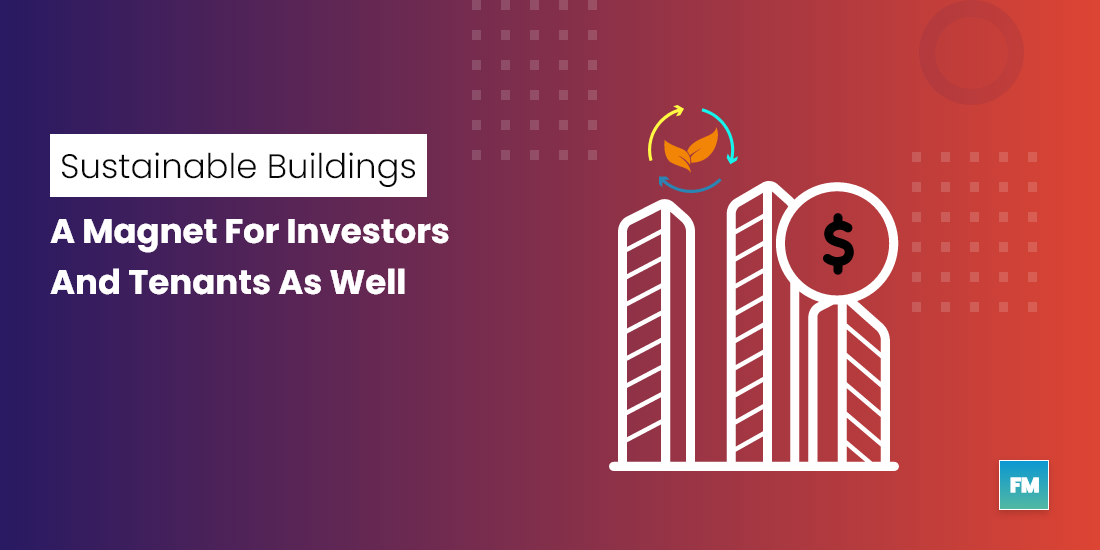In the initial days, sustainability was only associated with having that ‘feeling good’ attitude for the future generation or helping society to reduce carbon emission. It felt like a moral responsibility to environmentally conscious people which later translated into duty and activism.
“Climate change is real, it is happening right now, it is the most urgent threat facing our entire species, and we need to work collectively together and stop procrastinating,” remember these famous lines from the acceptance speech by none other than Leonardo DiCaprio? He delivered a sensational speech when he received his first-ever oscar for the movie Revenant.
It brings goosebumps to hear him out on sustainability and climate change. Of course, we all have been witnessing some of the unpresidential climate tragedies in recent times whether it’s a wildfire or sinking an entire Island due to rising sea levels. It will continue happening unless we limit the rising global temperature to 1.5 degrees celsius by 2030-40.
For global businesses, it was their social responsibility to invest in environmental initiatives and practice sustainable supply chain targets. But in the last 1-2 decades, those businesses, local governments and non-profit organizations have successfully created an ecosystem where sustainability is closely associated with profitability.
Initiatives such as EP 100, RE 100 have made businesses pledge to reduce their resource consumption and go for renewable energy sources. For commercial buildings, there are numerous certification and standardization bodies such as LEED, IGBC, GBC US, that are providing guidelines for sustainable building management and also to design sustainable buildings.
From an operational point of view now sustainable buildings have more opportunity to attract investors, tenants. There are multiple studies that suggested sustainability has turned into profit centers.
According to the sustainable building market study by Ramboll, 95% of respondents believe that sustainability is important for successful business operations.
Drivers for Sustainable building:
Clearly, there are multiple drives that are responsible for bringing sustainability to the mainstream.
- Operational efficiency and savings
- Reduced risk and capital cost
- Increased market demand
- Higher property value
One of the most important drivers of sustainable buildings in a market economy is the financial benefits. Investments in energy management and resource efficiency solutions have resulted in reducing operating costs during a building’s operation. According to the same report, 50% of the respondents have actual experience of achieving operational savings up to 10%.
In addition, sustainability throughout the total life cycle of the building can be now assessed with smart building technologies ensuring long-term visibility on environmental effects. The emergence of Building Information Modelling (BIM), digital twins and cloud technologies have shown new ways to improve operational efficiency.
Advantages For facility management teams:
While sustainable buildings are valuable for a property owner they are also equally important for facility management teams.
- Sustainability initiatives can give them the opportunity to expand their energy management services and commit energy-saving targets with shared benefits.
- It can open doors to strategic asset performance management services for better asset maintenance
- Advisory services for building standardization and green certifications.
- As mentioned in one of our previous blogs on ‘Net-zero benefits for Facility management firms’ sustainability initiatives can help FM firms get into a strategic relationship with the client’s top executive team.
Once the team is confirmed on benefits and investment on sustainable initiatives there are numerous ways to make a facility sustainable – building designs, retrofit solutions, operational sustainability, renewable energy sourcing.
Since most of the FM contracts are responsible for managing existing building infrastructure we are going to list down initiatives that can help them to improve the operational sustainability of the building.
- Create Assessment Framework:
Set clear and actionable SMART goals (Specific, Measurable, Achievable, Realistic, and Timely deliverable goals). Align them with the client’s yearly O&M contracts or digitalization initiatives.
Identify KPIs the team would want to work on, accordingly come up with dynamic benchmarks on per capita resource consumption, energy intensity, etc.
- Technology stack:
Understand what kind of asset data is being monitored, applications/tools that required to analyze raw data, and provide actionable insights on use cases such as energy management, predictive maintenance, Fault detection diagnostic (FDD) for improving operational efficiency.
- Change management:
This may sound cliche but it has been observed that teams with proactive leadership have aggressively achieved their sustainability goals. It is very important to understand stand why we have set up those goals and how to effectively communicate them with all the stakeholders.
So, what are the key initiatives your Facility management team has taken for the year 2021? We would love to hear from you.

Leave a Reply